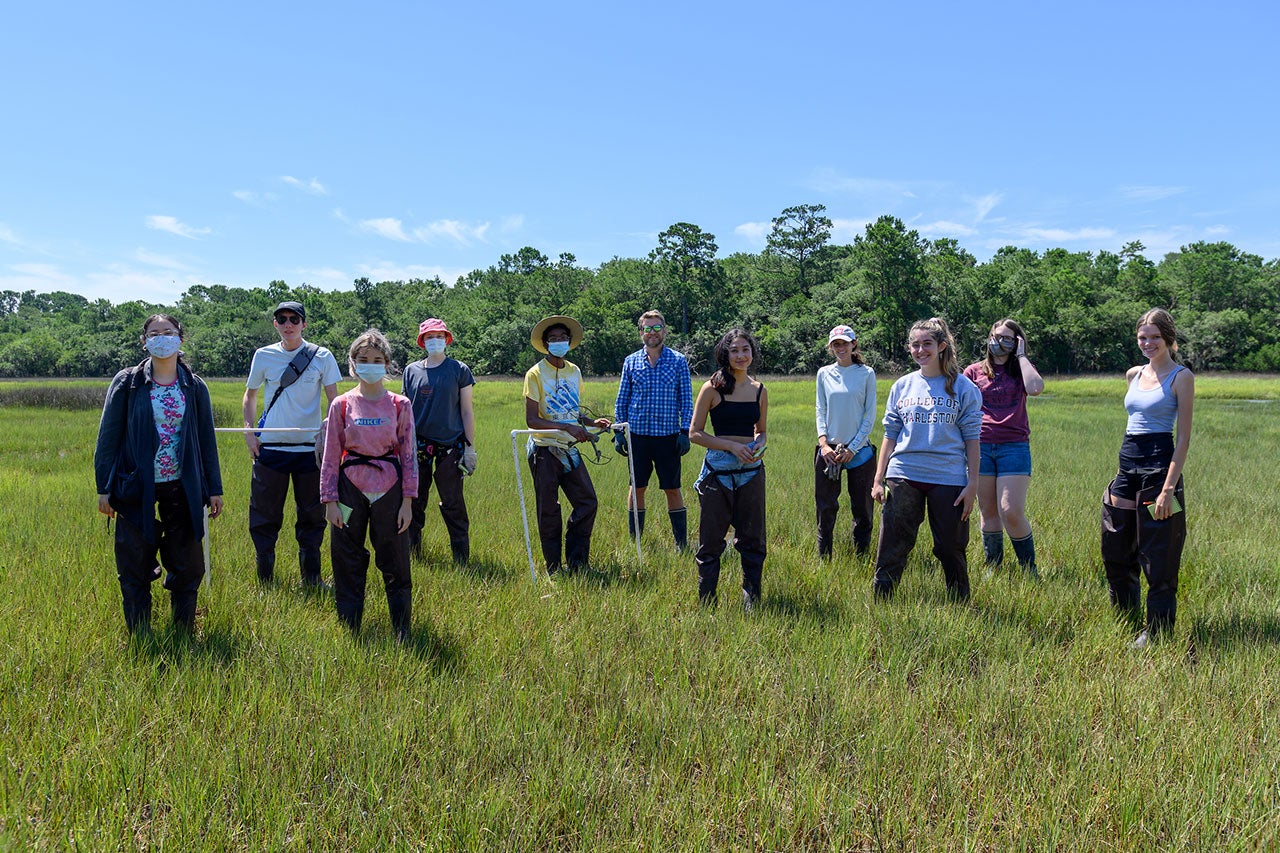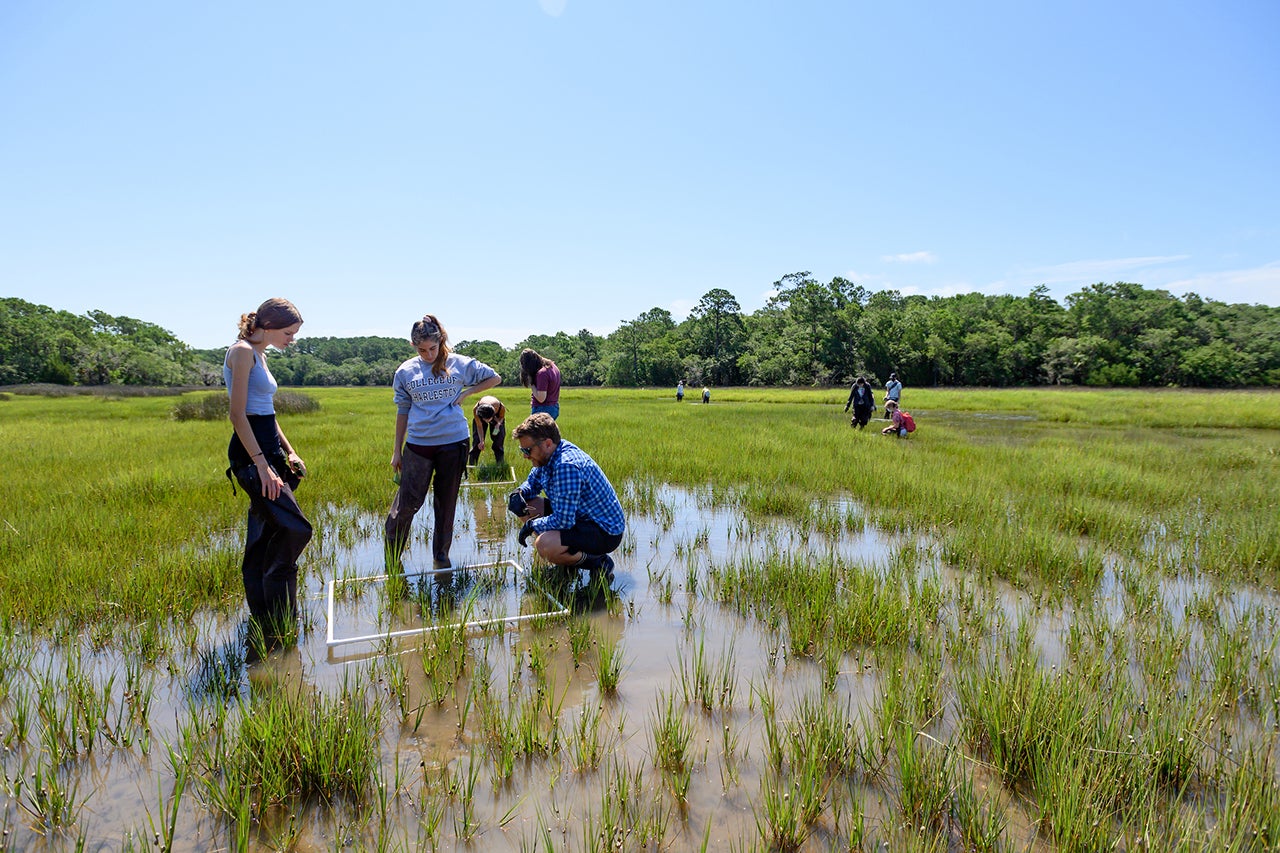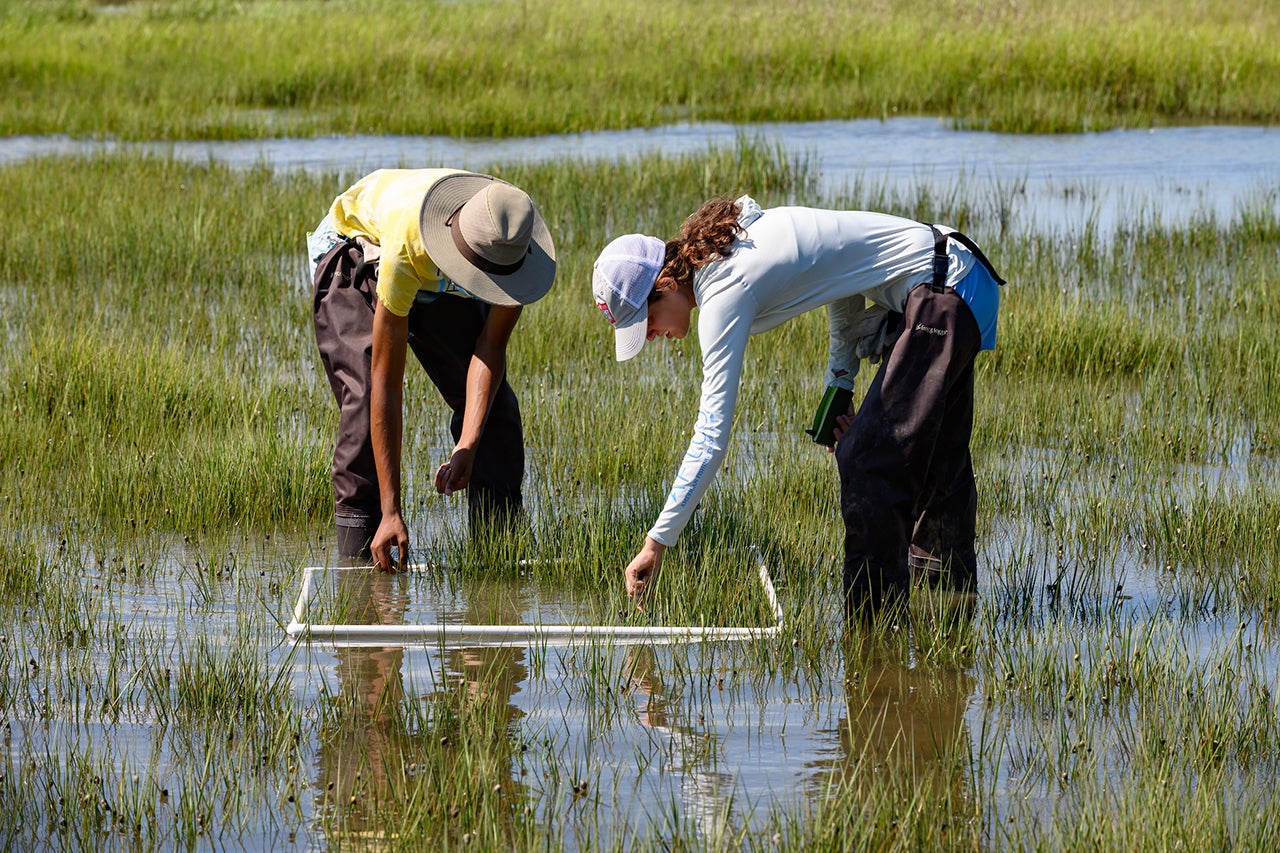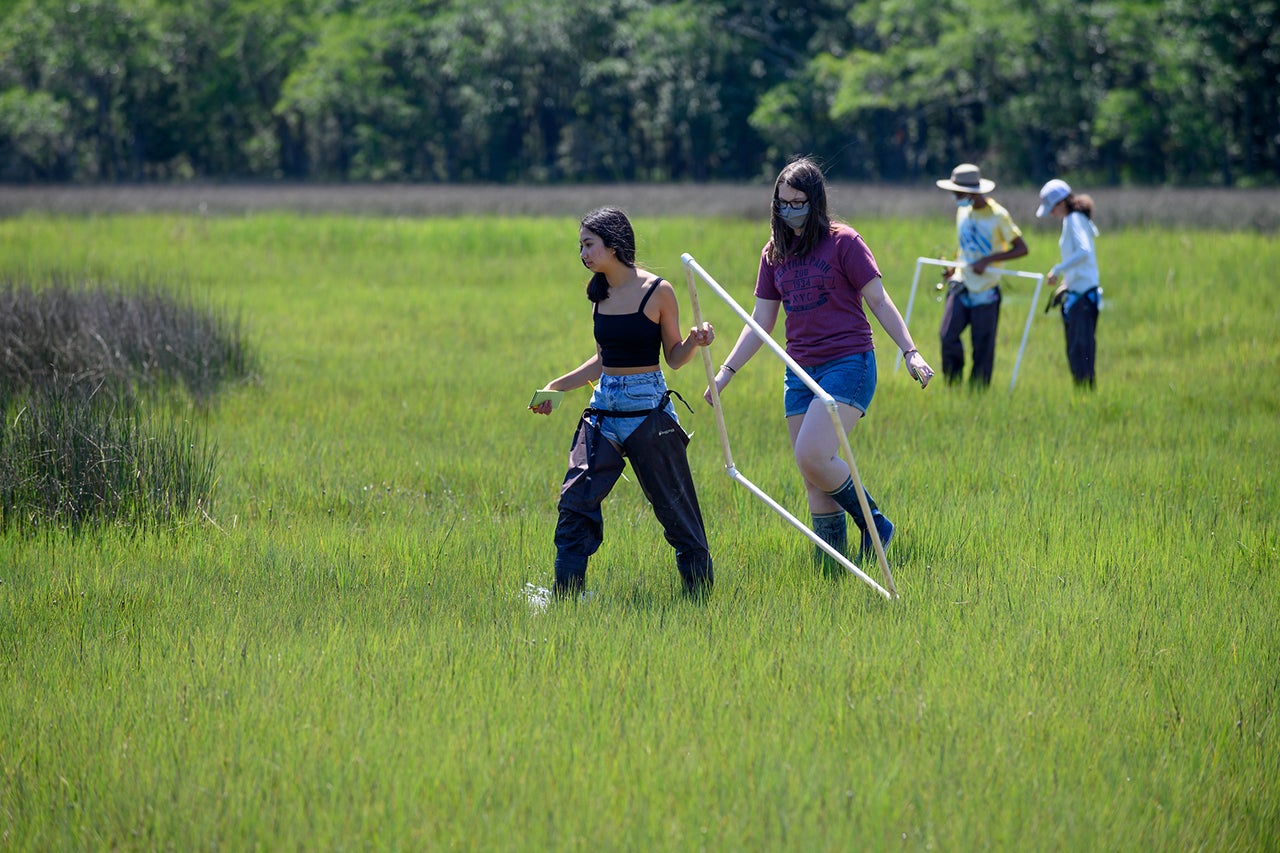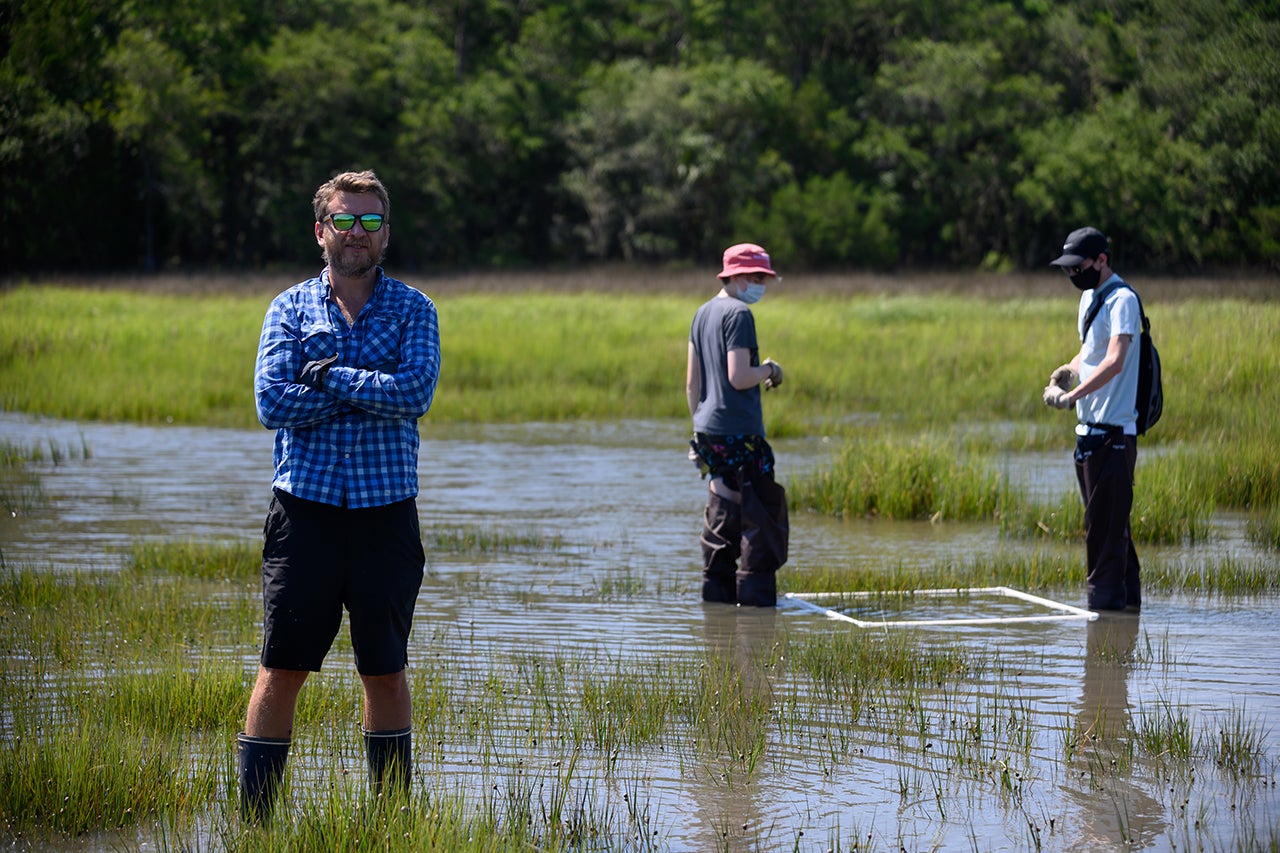The summer is the perfect time to expand your horizons and learn something new, and some high school students recently got a chance to explore the College of Charleston experience in a unique, immersive way through the Honors College Summer Institute.
Featuring weeklong courses taught by CofC faculty, the Honors College Summer Institute not only offers students the critical-thinking skills they’ll need to be successful as undergraduate students and professionals, but also the tools they’ll need to shape the world as future changemakers.
“The Honors College Summer Institute is our way of sharing our beautiful campus, excellent faculty and love of learning with high school students here in Charleston and across the nation,” says Brooke Permenter, director of student engagement in the Honors College. “By inviting these young people into our labs and classrooms, showing them our connections to the natural and civic environments of the area, and empowering them to act as leaders, we aim to help them envision themselves as the next scholar-citizens of Cougar Nation and beyond.”
This year’s courses included Saving Biodiversity in the Anthropocene, taught by Visiting Assistant Professor of biology Chris Freeman, and Stories of COVID-19: Understanding Health Disparities, taught by Kathy Béres Rogers, associate professor of English and director of the medical humanities minor at the College.

Students explore saltwater marshes at James Island County Park as part of the Honors College Summer Institute’s pre-college Saving Biodiversity in the Anthropocene course.
“The class was designed for people who might be considering health care careers, broadly constructed, but I think it would be interesting for anyone – and that is everyone – who has lived through the COVID-19 pandemic,” says Béres Rogers, explaining that the course looked at why every COVID story matters and how students can help rewrite the health care stories of the future. “By emphasizing the importance of patient stories, I hope that these students will take the time to listen, with what Sayantani DasGupta calls ‘narrative humility,’ to the stories of patients – or even people in their communities. I hope these stories open students’ eyes not only to the disparities between experiences of COVID-19, which are vast, but also to the history behind these disparities, whether they be based on race, class or disability.”
And the class certainly made an impact.
“During the five days of interesting topics/debates, I’ve listened to all kinds of personal narratives told by people of different social classes/race/income/disabilities who have been affected by the pandemic; I’ve been fascinated to learn of how far health disparities go back in history, in which there has been no exception with COVID-19,” says Ananya Chag, a rising senior at Porter-Gaud School in Charleston, who has written about the pandemic for The Post and Courier and for the University of Oxford. “Given my interest in public health journalism, I took the course to deepen my understanding on the social impacts of the virus which so drastically turned our lives upside down.”
Margeaux Stapleton, a rising senior at the South Carolina Virtual Charter School who is interested in the medical field and international medical care, agrees: “There were a multitude of things that I learned from the class, but the one that stands out is that patient inequality is a serious issue in our health care system.”
The students in Freeman’s Saving Biodiversity class learned about a different serious issue: the impact humans are having on local marine and terrestrial ecosystems in and around Charleston. The class – which was designed “for those who dream of saving the planet but aren’t quite sure where to begin” – was held mostly in local saltmarshes to give students firsthand access to the biodiversity of the area.

Visiting Assistant Professor of biology Chris Freeman leads students in field testing work at James Island County Park. (Photos by Heather Moran)
“I want students to develop a deeper appreciation for biodiversity (including both large and small organisms) and all the important services that these organisms and natural ecosystems provide to humans,” says Freeman. “I also hope that they are able to recognize the growing threats to these organisms at both local and global scales.”
Mission accomplished.
“I learned so much about the significant impact humans have on species and the environment,” says Sarah Reed, a rising senior, who attends school online through South Carolina Connections Academy. “I wanted to take the biodiversity class because I’ve always been passionate about wildlife and I hope to pursue marine biology in the future.”
Many of the students agree that the chance to explore their field of potential interest before even entering college has been invaluable.

An Honors College Summer Institute student holds mussels from her quadrats – the PVC squares that the students used to count the abundance and diversity of organisms at James Island County Park.
“I took the course to get a feel for what and how field/lab researching is conducted on a professional level for the career path I want to take in life – working with/researching flora and fauna,” says John Singletary, a rising senior at West Ashley High School in Charleston. “The most impactful thing for me has been the experience and connections I’ve gained at this program, being able to conduct research and field test was something I thought I wouldn’t be able to do until college and being able to get that exposure early on with Dr. Freeman will be extremely beneficial for anyone looking to go into a career with flora or fauna.”
And the fact that students in the Honors College Summer Institute got their first taste of college right here at the College of Charleston is just an added bonus.
“When I signed up for Saving Biodiversity in the Anthropocene, I was looking to immerse myself in the College of Charleston to see if it is the right fit for me, as well as determining if biology was truly the subject I want to pursue for my degree,” says Ada Skradski, rising senior at the Academic Magnet High School in North Charleston. “Unsurprisingly the summer institute at the Honors College made me fall in love with the campus, the teaching style, the subject matter and also has helped me make connections within the school. I’m so glad I was able to take this class with CofC!”

